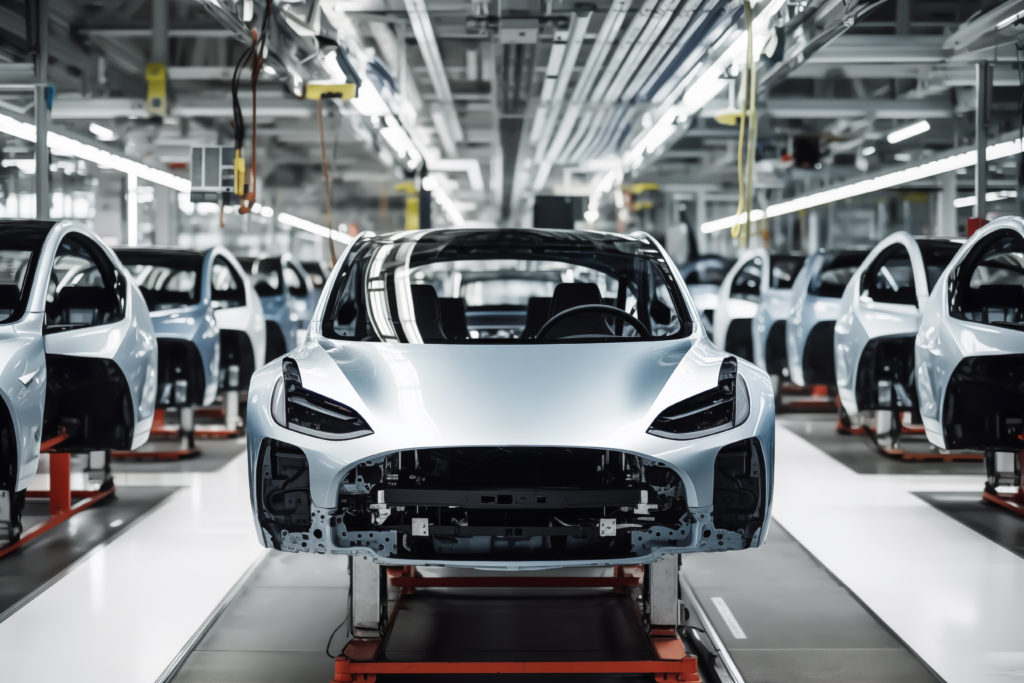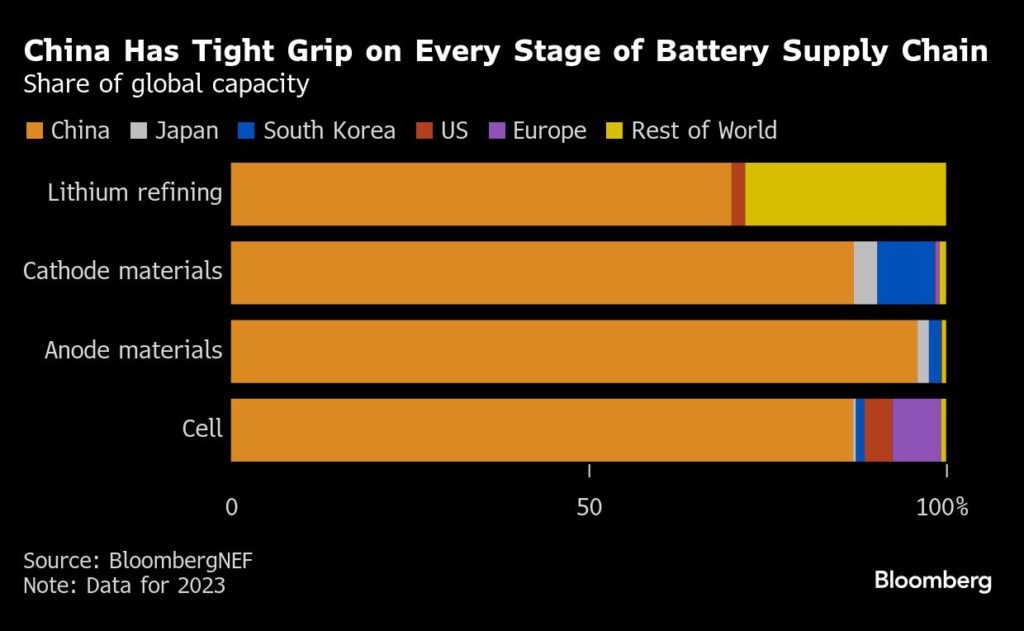China flexes lithium dominance with plans for tech-export curbs

China is planning tougher scrutiny on exports of technology to make battery materials, as Beijing looks to protect its grip on a crucial supply chain amid rising global trade tensions.
The government has proposed adding various technologies — some used for lithium refining and battery chemicals production — to its list of items that are subject to export controls, according to a notice seeking public opinion from the Ministry of Commerce on Thursday.
The plan appears aimed at protecting innovations that China has developed during its rise to dominate global battery and electric-vehicle production. It comes against a backdrop of burgeoning competition with the US in everything from critical minerals to semiconductors.
“This shows the government is aware of the importance of keeping these advanced lithium technologies secret,” said Yu Yakun, analyst at Cofco Futures Co. “Overseas investments with such technologies will be under stricter scrutiny.”

The proposed curbs target a selection of processes used to make battery-grade lithium chemicals, including direct lithium extraction, an emerging method in which China has considerable expertise. It also covers some specific types of chemical compounds used in making cathodes that are crucial to the performance of batteries.
The latest move is subject to public feedback and could change, but it left battery companies in China and the rest of Asia scrambling to understand the potential implications. There’s a focus on what the tighter scrutiny might mean for China’s growing overseas investments in the battery supply chain, especially in the case of joint ventures with foreign companies.
The restrictions “may not affect the projects which are currently operational or under construction” outside China but they might impact some future investments, said Peng Xu, an analyst at BloombergNEF.
The new export controls would cover technology for making certain types of lithium-iron-phosphate cathode, as well as lithium-iron-manganese-phosphate cathode and iron phosphates. Last year, China put the know-how for making rare earth metals under similar restrictions, which subject overseas shipments to a higher degree of scrutiny.
The measures are relatively narrow in scope, for example targeting only the more advanced types of the named products. Battery cathodes can differ widely in performance and cost, and China has spearheaded efficiency gains in the lithium-iron-phosphate, or LFP, units that are gaining popularity in the global EV industry.
The proposal aims to preserve China’s leadership in the “LFP battery supply chain in high-end products rather than imposing comprehensive export restrictions on LFP technology,” Citigroup Inc. analysts including Jack Shang wrote in a note.
Shares in lithium and material suppliers fell amid a wider selloff in mainland stocks. Major producer Ganfeng Lithium Group Co. dropped 3%, while Tianqi Lithium Corp. fell 2.4%. Hubei Wanrun New Energy Technology Co. fell 7.3%.
Last month, China announced a ban on exports of several materials with high-tech and military applications, a tit-for-tat move after the US government escalated technology curbs on Beijing. China is the top global supplier of dozens of critical minerals, and concerns about its dominance have been mounting in Washington and other capitals.
Gallium, germanium, antimony and superhard materials are no longer allowed to be shipped to America, while sales of graphite have been placed under tighter controls. The metals are used in everything from semiconductors to satellites and night-vision goggles.
The latest measure on battery materials is part of efforts to “strengthen the management of technology imports and exports,” China’s official Xinhua News Agency said. The public can provide feedback on the proposals until Feb. 1, it added.
Read More: Rattled by China, West scrambles to rejig critical minerals supply chains
{{ commodity.name }}
{{ post.title }}
{{ post.date }}




Comments